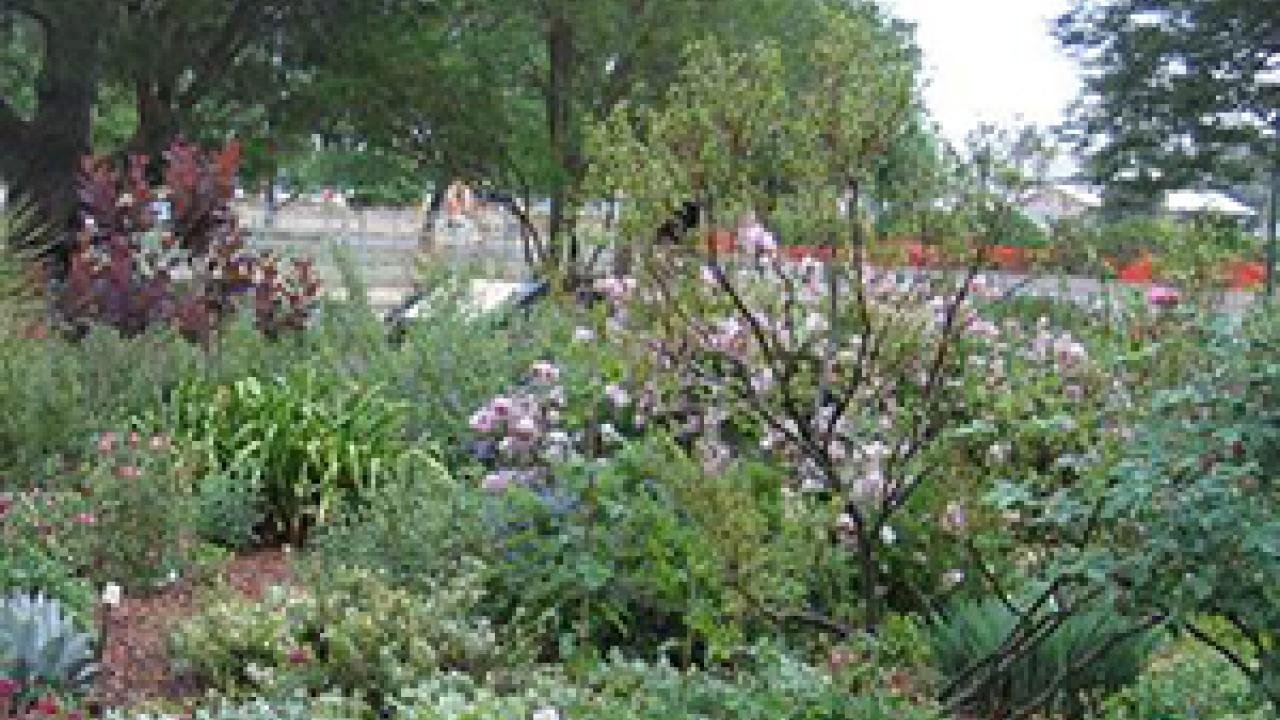
February 12, 2015
A Message from Dean Helene Dillard: Teamwork is a key ingredient to our success
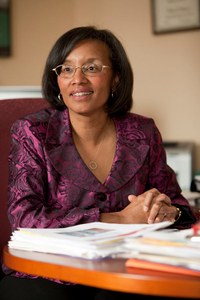 I recently spent an exciting evening watching the UC Davis men’s basketball team at the Pavilion on campus. The team beat UC Santa Barbara and has a winning record this season. It struck me how throughout the ups and downs of the game, the players’ tenacity and teamwork pulled them through to victory.
I recently spent an exciting evening watching the UC Davis men’s basketball team at the Pavilion on campus. The team beat UC Santa Barbara and has a winning record this season. It struck me how throughout the ups and downs of the game, the players’ tenacity and teamwork pulled them through to victory.
I see those same qualities at work in our college. Teamwork, as philanthropist Andrew Carnegie once noted, is “the ability to work together toward a common vision. The ability to direct individual accomplishments toward organizational objectives.” We share a common vision in our commitment to first-rate teaching, research, and outreach. Our ability to work together as a team makes it happen.
Effective learning takes place here because of a diverse group of individuals engaged in our mission to teach students. This obviously includes faculty and teaching assistants who present knowledge in a compelling manner. It also includes experienced staff members who can guide students in hands-on learning. A few weeks ago I saw a terrific example of this at the UC Davis Horse Barn, where undergraduates learn how to handle and exercise the animals, take responsibility for reproductive duties, and serve as onsite foal managers.
Our research enterprise is supported by a network of people who work with the faculty. They include graduate and undergraduate students, postdoctoral scholars, technicians, and others. They’re in fields, laboratories, and greenhouses collecting and analyzing soil samples, leaf tissues, and insect specimens. They conduct bird surveys, tag endangered fish, and model wildlife populations. They study the well-being of youth, develop strategies to fight obesity, and explore the connection between social equity and healthy economies.
When there’s a pest or disease outbreak in this state, California’s farmers turn to the University of California for assistance. We have many different workgroups composed of UC Davis faculty, Cooperative Extension specialists, and county-based advisors who work to tackle these and other issues involving agriculture, the environment, and human sciences. The centers and institutes housed in our college provide another focal point for bringing together teams of experts on an issue.
It’s the team approach that gives us focus and produces results that expand the knowledge base. And that is making a difference in the lives of our students, the people who work here, and the citizens we serve. Keep up the good work.
Helene R. Dillard
Dean
College of Agricultural and Environmental Sciences
hrdillard@ucdavis.edu
Who
Dan Sperling appointed 2015 chair of Transportation Research Board Executive Committee
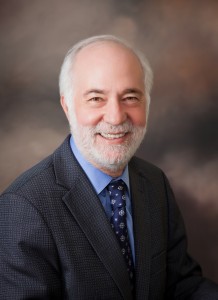 Environmental science and policy professor Dan Sperling has been appointed the 2015 chair of the Transportation Research Board’s Executive Committee. The board, a major division of the National Research Council, provides independent scientific advice to the nation on transportation issues.
Environmental science and policy professor Dan Sperling has been appointed the 2015 chair of the Transportation Research Board’s Executive Committee. The board, a major division of the National Research Council, provides independent scientific advice to the nation on transportation issues.
Sperling is the founder and director of the UC Davis Institute of Transportation Studies. His appointment was announced at the annual meeting of the Transportation Research Board in January, an event attended by transportation professionals from throughout the United States and abroad. The executive committee that Sperling will chair oversees the board’s programs and activities, engaging more than 7,000 engineers, scientists, and transportation researchers and practitioners from academia and the private and public sectors.
"The Transportation Research Board is hugely influential as the focal point of transportation research activities in the United States and the world," Sperling said. "I am honored to lead it and look forward to helping broaden its engagement with environmental and other sustainability issues."
Dan Sperling
Department of Environmental Science and Policy
530-752-7434
dsperling@ucdavis.edu
Robbin Thorp named 2015 Distinguished Emeritus
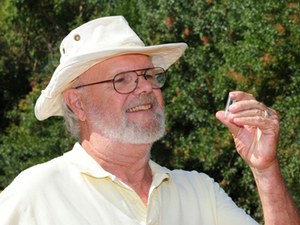 Retired entomology professor Robbin Thorp is the recipient of the 2015 UC Davis Distinguished Emeritus Award for his outstanding scholarly work and service since embarking on retirement in 1994. He will be honored in February at a chancellor’s luncheon, where he will receive a plaque and a cash award.
Retired entomology professor Robbin Thorp is the recipient of the 2015 UC Davis Distinguished Emeritus Award for his outstanding scholarly work and service since embarking on retirement in 1994. He will be honored in February at a chancellor’s luncheon, where he will receive a plaque and a cash award.
Thorp is a world-renowned specialist in native pollinators. He joined the UC Davis entomology faculty in 1964 and became an authority on pollination ecology, ecology and systematics of honey bees, bumble bees, vernal pool bees, conservation of bees, contribution of native bees to crop pollination, and bees of urban gardens and agricultural landscapes. Over the course of the last 20 years, he has continued to conduct research, publish scientific papers, and teach graduate students. He is active with a number of professional societies and has received a number of awards for his accomplishments.
Read a blog post by Kathy Garvey to learn more.
Robbin Thorp
Department of Entomology and Nematology
530-752-0482
rwthorp@ucdavis.edu
What
African Orphan Crops Consortium receives “Greater Good” grant from Illumina, Inc.
The African Orphan Crops Consortium (AOCC) is the 2015 recipient of the Agricultural Greater Good Initiative grant from Illumina, Inc., a company that provides products for genetic sequencing.
The AOCC is a collaboration between the African Union—New Partnership for Africa’s Development, Mars, Inc., UC Davis, and other private and not-for-profit partners. The consortium’s goal is to use crop sequences to develop breeding programs and other methods of improved farming practices to increase crop yields and nutrition. The grant of Illumina reagents and consumables will further the consortium’s work on the genetic diversity of African crops, particularly those grown by subsistence farmers.
“We are very excited to receive this prestigious award,” said Allen Van Deynze, director of research at the UC Davis Seed Biotechnology Center. “With the award, we will sequence the transcriptomes for 50 species of African orphan crops to define the genes expressed in these species. All the work will be carried out in Africa. Our goal is to curb stunting due to malnutrition, an epidemic affecting 35 to 40 percent of Africans, by training breeders and improving crops important nutritionally to African diets.”
The Illumina Agricultural Greater Good Initiative grants are awarded annually at the Plant and Animal Genome Conference. Grant recipients receive donations of Illumina products to support their projects. Learn more about the company’s agricultural genomics products.
Allen Van Deynze
Seed Biotechnology Center
530-754-6444
avandeynze@ucdavis.edu
CA&ES Award of Distinction nominations due by March 13, 2015
Nominations for outstanding individuals to be considered for the college's Award of Distinction are due by March 13. These annual awards recognize the accomplishments of a small number of outstanding alumni, friends, faculty, and staff to be honored at College Celebration.
One or more individuals who meet the criteria can be nominated. The nomination packet can be found at http://collegecelebration.ucdavis.edu. Nominations should be kept confidential. Dean Helene Dillard will personally contact the recipients chosen by the selection committee. Nominators and supporters will also be notified.
Award of Distinction recipients will be honored at the 27th annual College Celebration on Friday evening, October 2 at the UC Davis Activities and Recreation Center Pavilion.
Carrie Cloud
CA&ES Dean’s Office
530-204-7500
crcloud@ucdavis.edu
New multiphoton confocal microscope available for scheduling
A new multiphoton microscope is available for scheduling in the School of Veterinary Medicine. The Leica SP8 multiphoton confocal microscope features a white light laser with HyD detectors and is ideally suited for intravital microscopy, thick samples, and optically clarified tissues. Its high sensitivity and high speed allows for frame rates to be acquired while limiting potential damage to samples.
Colin Reardon
School of Veterinary Medicine
530-752-7496
creardon@ucdavis.edu
Arboretum events
For more information, visit the arboretum website: http://arboretum.ucdavis.edu.
Folk Music Jam Session
Fridays, February 27, March 13, noon–1 p.m., Wyatt Deck
Folk musicians are invited to bring their acoustic instruments and play together informally over the lunch hour. All skill levels are welcome, and listeners are invited.
All Things Acacia
Saturday, February 28, 2 p.m., Putah Creek Lodge
The late-winter display of yellow blossoms in the Eric E. Conn Acacia Grove features more than 50 different acacias from around the world. Free parking for this event is in the Putah Creek Lodge visitor parking lot off Garrod Drive.
Storytime through the Seasons: Climbing up the Ginkgo Tree
Sunday, March 1, 1–3 p.m., Wyatt Deck (rain location: 146 Environmental Horticulture)
Experience Asian culture with stories, activities, and experiences in the Arboretum’s East Asian Collection. All ages are welcome. Parking is available across the street from Arboretum headquarters (Valley Oak Cottage).
Member Appreciation Plant Sale
Saturday, March 7, 9 a.m.—1 p.m., Arboretum Teaching Nursery
Get the best selection at the Arboretum’s first plant sale of the spring season. The sale will have the area’s largest selection of attractive, easy-to-care, drought tolerant plants for the region, including grasses, California natives, and Arboretum All-Stars. The Arboretum Teaching Nursery is located on Garrod Drive near La Rue Road.
Walk with Warren: Warren G. Roberts Redbud Collection
Wednesday, March 11, noon–1 p.m., Arboretum headquarters (Valley Oak Cottage)
Join Warren Roberts, Arboretum superintendent emeritus, for an engaging noontime exploration of the Arboretum’s redbud collection. Learn more about redbuds as they burst with color in their transition from winter to spring.
Delights from Down Under
Saturday, March 14, 11 a.m., Arboretum GATEway Garden
Tour the Australian and New Zealand collections. Plants from “Down Under” show off their flowers during the rainy season. Parking for this free event is available in the Davis Commons shopping center. Meet at the shovel gateway sculpture.
When
Seed Central networking event: February 12, 2015
Seed Central hosts speakers and networking events that bring together seed and food professionals, UC Davis faculty, scientists, and students. The February 12 event begins with an afternoon session on plant pathology from 1:30 to 4 p.m. in room 3001, Plant and Environmental Sciences Building. Speakers include:
- Dario Cantu, assistant professor, Department of Viticulture and Enology
- Deborah Golino, director, Foundation Plant Services
- Tera Pitman, research associate, Department of Plant Pathology
- Inmaculada Ferriol Safont, post-doctoral fellow, Department of Plant Pathology
Networking at the UC Davis Conference Center will be held from 4:30 to 6 p.m., followed by the evening’s featured speaker, Alex Cochran, global director for research and development, DuPont Seed Treatment Enterprise. He will address recent advances in seed applied technology.
Future Seed Central speakers include Neal Gutterson, vice president of agricultural biotechnology with DuPont Pioneer on March 12; Joseph DiTomaso, UC Cooperative Extension weed specialist, on April 9; and Charles Brummer, director of the UC Davis Plant Breeding Center, on May 14. These events are free, but an RSVP is requested. More information is available at http://www.seedcentral.org/calendarofevents.htm.
Kathleen Bess-Esparza
Department of Plant Sciences
530-754-2162
klesparza@ucdavis.edu
Book launch forum—Harnessing Data for America’s Communities: February 13, 2015
A forum will be held 9 a.m. to noon February 13, at the Student Community Center to discuss a forthcoming volume of essays, “What Counts: Harnessing Data for America’s Communities.” The event is sponsored by the UC Davis Center for Regional Change, the Federal Reserve Bank of San Francisco, and the UC Davis Institute of Social Sciences.
The book, edited by the Federal Reserve Bank of San Francisco and the Urban Institute, outlines opportunities and challenges for the strategic use of data to reduce poverty, improve health, expand access to quality education, and build stronger communities. It is a response to both the explosive interest in using data to guide community initiatives, investment strategies, and policy choices, and the vexing questions that accompany data-driven approaches. The volume brings together authors from community development, public health, education, finance, and law to offer ideas for using data more meaningfully and effectively across sectors and institutions. Learn more about the book. RSVP.
Valerie Chiappone
Center for Regional Change
530-752-3007
vchiappone@ucdavis.edu
ASI talk “Can sustainable intensification feed the world?”: February 17, 2015
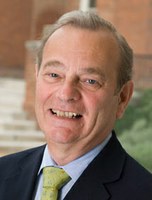 The Agricultural Sustainability Institute’s distinguished speaker series presents Sir Gordon Conway on Tuesday, February 17 from 4 to 5:30 p.m. His talk—“Can sustainable intensification feed the world?”— will be held in the multipurpose room at the Student Community Center.
The Agricultural Sustainability Institute’s distinguished speaker series presents Sir Gordon Conway on Tuesday, February 17 from 4 to 5:30 p.m. His talk—“Can sustainable intensification feed the world?”— will be held in the multipurpose room at the Student Community Center.
Conway, a professor of international development at Imperial College in London, is director of Agriculture for Impact, which focuses on European support for agricultural development in Africa. Considered one of the pioneers of sustainable agriculture, Conway also is a UC Davis alumnus. He will share his optimism about the world’s collective ability to use technology paired with sustainable practices and strategic planning to intensify food production for a growing global population.
Aubrey White
Agricultural Sustainability Institute
530-752-5299
abwhite@ucdavis.edu
Department of Plant Sciences celebrates 10 years: February 17, 2015
The Department of Plant Sciences will celebrate its 10-year anniversary February 17 in the UC Davis Activities and Recreation Center Ballroom. Refreshments will be served.
The Department of Plant Sciences was created by the merger of four CA&ES departments: Agronomy and Range Science, Environmental Horticulture, Pomology, and Vegetable Crops. Read more about the evolution of the former departments into the present day Department of Plant Sciences in a series of articles by Brad Hooker.
Brad Hooker
Department of Plant Sciences
530-752-9716
gbhooker@ucdavis.edu
Patrick Mulvaney at “Great Chef” event: February 28, 2015
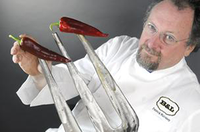 The second event in the “Great Chef Series” developed by the Robert Mondavi Institute for Wine and Food Science features Sacramento chef Patrick Mulvaney on February 28. Mulvaney began his culinary career in 1985 as an apprentice under some of Europe’s most renowned chefs. He was named a “rising star of the Southwest” in 1988 for his work at the Phoenix restaurant Roxsand. After returning to California in the ‘90s, he worked at restaurants such as Paragary’s and The Kitchen before opening his own establishment, Mulvaney’s B&L, in 2005. B&L features local, fresh, and organic ingredients.
The second event in the “Great Chef Series” developed by the Robert Mondavi Institute for Wine and Food Science features Sacramento chef Patrick Mulvaney on February 28. Mulvaney began his culinary career in 1985 as an apprentice under some of Europe’s most renowned chefs. He was named a “rising star of the Southwest” in 1988 for his work at the Phoenix restaurant Roxsand. After returning to California in the ‘90s, he worked at restaurants such as Paragary’s and The Kitchen before opening his own establishment, Mulvaney’s B&L, in 2005. B&L features local, fresh, and organic ingredients.
Participants registering for the full day will join Mulvaney in the Food Innovation Kitchen, where they will prepare a number of dishes and enjoy lunch with the prepared items. The afternoon session includes a lecture, and food, wine, and beer tastings in the Silverado Vineyards Sensory Theater. Registration for the full day is $250. Half-day registration is $50 ($25 with valid student identification).
Stephanie Shimada
Robert Mondavi Institute
530-752-4180
shimada@ucdavis.edu
Western Center for Agricultural Health and Safety seminar: March 2, 2015
Fadi Fathallah, a professor in the Department of Biological and Agricultural Engineering, will present a seminar March 2 from 4 to 5 p.m. for the Western Center for Agricultural Health and Safety.
He will discuss the history of and new opportunities with the California AgrAbility Project, which promotes independence in farming and rural living for people with severe injuries and disabilities and illnesses. Fathallah’s research focuses on exposure assessment and development of interventions for the prevention of musculoskeletal disorders among agricultural workers; understanding the effects of stooped postures and stooped work on the spine; and the biomechanics of ladders in agriculture.
Location of the seminar is the Center for Health and the Environment on Old Davis Road—about one mile south of campus. The lecture is free and open to the public. No parking permit is required.
Cindy Valencia
Western Center for Agricultural Health and Safety
530-752-5253
cvavelar@ucdavis.edu
Seminar on sturgeon in the Sacramento—San Joaquin watershed: March 3, 2015
The Center for Aquatic Biology and Aquaculture (CABA) will hold a daylong seminar March 3 on the status of sturgeon in the Sacramento and San Joaquin watersheds. The event will be held in Ballroom A of the UC Davis Activities and Recreation Center and runs from 9 a.m. to 4 p.m.
The seminar, which is free and open to the public, is intended to share new insights in support of conservation and management of both green and white sturgeon. The goal of this symposium is to shed light on the unknowns of these species and to help guide enhanced management and conservation efforts. CABA and the Delta Stewardship Council’s Science Program are jointly presenting the seminar. More information.
Paul Lutes
Center for Aquatic Biology and Aquaculture
530-752-8160
pblutes@ucdavis.edu
Rustici Rangeland Science Symposium: March 3–4, 2015
The third Rustici Rangeland Science Symposium will be held March 3–4 at the UC Davis Conference Center. This year’s symposium will focus on two topics at the intersection of science, policy, and management of California’s working rangelands—water quality and sustainable public lands grazing.
Day one will provide an overview of ranch water quality planning and regulation, the state of the science on water quality and rangeland management, and will address future directions in water quality planning and regulations. Day two will include perspectives from policy makers, the environmental community, and ranchers on creating sustainable public lands grazing policy. It will also address policy and research for sustainable public lands management and success stories of working public lands partnerships.
For more information and to register.
Tracy Schohr
Department of Plant Sciences
916-716-2643
tkschohr@ucdavis.edu
Fruit Ripening and Retail Handling Workshop: March 17–18, 2015
The 21st annual Fruit Ripening and Retail Handling Workshop takes place March 17–18 at the Walter A. Buehler Alumni Center. Presented by the UC Davis Postharvest Technology Center, the workshop is for shippers and fruit handlers (wholesale and retail), and produce managers who are involved in handling and ripening fruits and fruit vegetables.
The workshop focuses on how to increase profits by reducing losses at the receiving end and delivering ready-to-eat fruits and fruit vegetables to consumers. In addition to studies on harvest maturity, storage conditions, and flavor quality, the program focuses on regulation of fruit ripening and cellular regulation of calcium deficiency disorders.
Registration for the course is $795. Course website.
Penny Stockdale
UC Davis Postharvest Technology Center
530-752-7672
pastockdale@ucdavis.edu
California Climate and Agriculture Summit: March 24–25, 2015
The fourth California Climate and Agriculture Summit will be held March 24-25 at UC Davis and at area farms and ranches. The event is hosted by the California Climate and Agriculture Network, a nonprofit advocacy group that represents sustainable agriculture organizations and allied groups working with California farmers. Registration for the event is open.
The summit begins March 24 with a tour of the Rominger Brothers Farm, Hedgerow Farm, and a cattle ranch, followed the next day by plenary, workshop, and poster presentations at the UC Davis Conference Center and concluding with a wine and cheese reception. The summit is designed to explore the science, policy, and practice of climate change and sustainable agriculture in California. Participants include farmers and ranchers, agency staff, technical service providers, policymakers, university researchers, and advocates concerned with climate change challenges and opportunities in California agriculture. For more information and to register.
Renata Brillinger, executive director
California Climate and Agriculture Network
707-823-8278
renata@calclimateag.org
Urban horticulture workshop “Creating a Living Landscape”: March 28, 2015
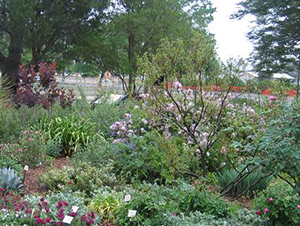 The California Center for Urban Horticulture (CCUH) will hold a daylong workshop on Saturday, March 28, called “Creating a Living Landscape.” The event will be held on the Davis campus at Medical Sciences 1C, Room 180.
The California Center for Urban Horticulture (CCUH) will hold a daylong workshop on Saturday, March 28, called “Creating a Living Landscape.” The event will be held on the Davis campus at Medical Sciences 1C, Room 180.
The cost is $45 and includes parking, a light breakfast, lunch, workshop instruction, and a special tour of the Häagen-Dazs Honey Bee Haven Garden. Bee boxes for the landscape will be available for purchase. The workshop runs from 8 a.m. to 3 p.m. (come early for breakfast). The garden tour starts after the workshop at 3:15 p.m.
The workshop is intended for garden enthusiasts, nursery employees, and master gardeners. Topics include backyard birds, “green” roofs, not-so-common pollinators, tools for pest control, and plants that attract wildlife. To register visit CCUH.
Anne Schellman
California Center for Urban Horticulture
530-752-6642
aschellman@ucdavis.edu
Queen bee-rearing short course: March 28–29, 2015
The Department of Entomology and Nematology will offer a short course on queen bee-rearing techniques March 28–29 at the Harry H. Laidlaw, Jr. Honey Bee Research Facility.
The course will be taught be UC Cooperative Extension apiculturist Elina Lastro Niño and assisted by staff research associates Bernardo Niño and Billy Synk. The course is designed for those who have some beekeeping experience and would like to move on to the next step of rearing their own queens or to try bee breeding. Topics include honey bee queen biology, basics of selective honey bee breeding, queen bee rearing techniques, hygienic behavior testing, and assessment of varroa mite levels.
Course registration is $200. Class size is limited to 14 participants. The Laidlaw facility is located on Bee Biology Road, west of the main campus. For additional information about the course, read a blog post by Kathy Garvey.
Bernardo Niño
Department of Entomology and Nematology
elninobeelab@gmail.com
“Keeping Bees Healthy” symposium: May 9, 2015
The Honey and Pollination Center and the Department of Entomology and Nematology are hosting a symposium, “Keeping Bees Healthy,” at the UC Davis Conference Center on May 9.
“This educational program is designed for beekeepers of all experience levels, including gardeners, farmers, and anyone interested in the world of pollination and bees,” said Amina Harris, director of the Honey and Pollination Center.
Speakers include UC Davis honey bee scientists Brian Johnson and Elina Lastro Niño; UC Davis native bee scientist Neal Williams; Iowa State University bee scientist Amy Toth; and University of Minnesota professor Marla Spivak. The event also includes graduate student research posters, the latest in beekeeping equipment, books, honey, plants and a tour of the Häagen-Dazs Honey Bee Haven.
Registration is $75 ($15 for students). Both include a continental breakfast, lunch and post-event reception. Read more.
Amina Harris
Honey and Pollination Center
530-754-9301
aharris@ucdavis.edu
Stephanie Shimada
Robert Mondavi Institute
530-752-4180
shimada@ucdavis.edu
CA&ES annual spring faculty meeting: May 28, 2015
The annual spring faculty meeting for the College of Agricultural and Environmental Sciences will be held May 28 in the AGR Room of the Walter A. Buehler Alumni Center from 4 to 6 p.m. Mark your calendars and plan to attend.
Brenda Nakamoto
CA&ES Dean’s Office
530-752-1606
bvnakamoto@ucdavis.edu
Postharvest Technology of Horticultural Crops Short Course: June 15–26, 2015
Enrollment is open for the 37th annual Postharvest Technology of Horticultural Crops Short Course. The two-week course will be held June 15–26 at the UC Davis Activities and Recreation Center.
The course, organized by the UC Davis Postharvest Technology Center, is an intensive study of the biology and current technologies used for handling fruits, nuts, vegetables, and ornamentals in California. It is designed for research and extension workers, quality control personnel in the produce industry, and business, government, or academic professionals interested in current advances in the postharvest technology of horticultural crops. The course will be of particular interest to technical professionals responsible for quality assurance, research, and extension activities related to fresh produce quality, safety, and marketability.
The two-week lecture and field trip option is limited to 55 participants; registration fee is $2,995. A one-week lecture-only option is limited to 25 participants; registration fee is $1,975. To learn more and to register.
Penny Stockdale
UC Davis Postharvest Technology Center
530-752-7672
pastockdale@ucdavis.edu
International Conference on Fresh-cut Produce—Maintaining Quality and Safety: September 13–18, 2015
Abstracts and early registrations are being accepted for the third International Conference on Fresh-cut Produce—Maintaining Quality and Safety. The conference will be held on the UC Davis campus September 13-16, with an optional two-day technical tour September 17–18. Conference attendance will be limited to 200 registrations.
The conference is being organized by UC Cooperative Extension Specialist Marita Cantwell under the aegis of the International Society for Horticultural Science. General topics include quality and product development, temperature and handling logistics, preparation and processing, packaging and modified atmospheres, food safety and sanitation, and marketing and consumer acceptance. An industry–academia panel is also planned, focusing on future industry needs and emerging technologies in fresh-cut products.
Register online and learn more at the conference website. Abstracts can be submitted online until March 15. The conference will take the place of the annual fresh-cut workshop in 2015.
Penny Stockdale
UC Davis Postharvest Technology Center
530-752-7672
pastockdale@ucdavis.edu
* * * * * * * * * * * * * *
Visit CA&ES Currents online at http://www.caes.ucdavis.edu/news/publications/currents.
CA&ES Currents, the faculty/staff newsletter of the College of Agricultural and Environmental Sciences at the University of California, Davis, is published monthly. Send news items to editor, jdstumbos@ucdavis.edu.
Editor: John Stumbos
Writing: John Stumbos, Helene Dillard
Editorial review: Ann Filmer, Julie Fritz-Rubert, Thomas Kaiser, Christine Schmidt
To be added to or deleted from this electronic newsletter list, please send an e-mail to: caeseditor@agdean.ucdavis.edu.
The University of California does not discriminate in any of its policies, procedures, or practices.
The university is an affirmative action/equal opportunity employer.